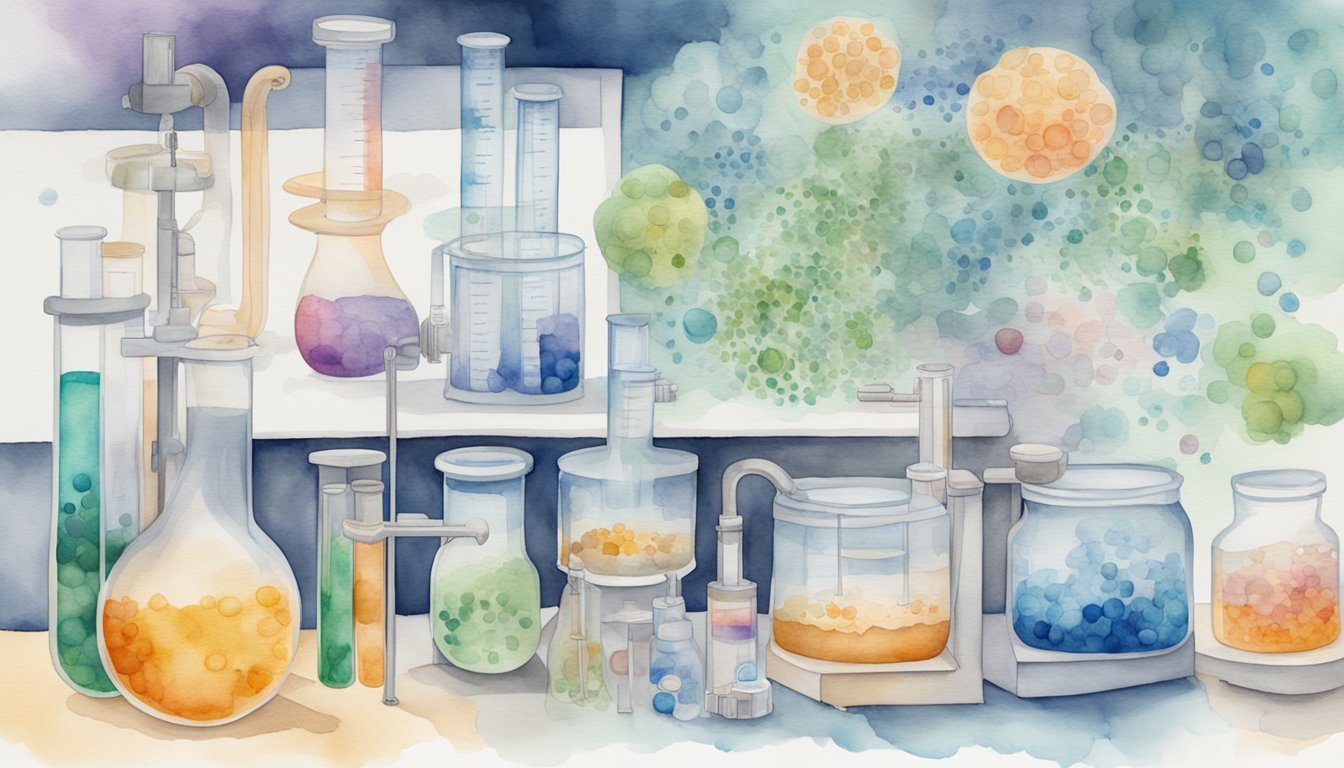Understanding Gut Bacteria and Mental Health
The complex interplay between gut bacteria and mental health is an evolving field of research drawing attention to the microbiome’s role in influencing mood and psychological states.
Role of the Gut Microbiome in Depression
Research indicates that the gut microbiome may have an impact on an individual’s mental health, particularly concerning depressive symptoms. Specific strains of gut bacteria are linked to the production of neurotransmitters like serotonin and GABA, which are crucial for regulating mood. The vagus nerve, often described as a bidirectional communication system, connects the gut to the brain, forming the gut-brain axis. This connection means that changes in the gut microbiota can potentially affect an individual’s brain chemistry and behavior.
Influences on Microbiome Composition
The composition of one’s gut microbiota is influenced by a multitude of factors including diet, lifestyle, genetics, and medication use. For instance, diets rich in probiotics can encourage the growth of beneficial bacteria, while the use of antibiotics can disrupt the balance of the microbiome. Additionally, lifestyle factors such as exercise and stress, as well as social and environmental influences, can all have profound effects on the microbiome composition.
Gut Bacteria Types and Their Functions
The human gastrointestinal microbiome is composed of a diverse array of bacteria, each with specific functions. Among these are bacteria like Bifidobacterium and Lactobacillus, which contribute to the synthesis of neurotransmitters. Other types like Faecalibacterium and Coprococcus are known to produce anti-inflammatory compounds, and their presence or absence has been correlated with symptoms of depression. Certain bacteria can also influence the efficacy of antidepressants, affecting how different individuals may respond to medications. Taxonomically diverse, the gut microbiota includes multiple phyla such as Firmicutes, Bacteroidetes, and Actinobacteria, whose relative abundances can signal shifts in mental health status.
Clinical Research and Therapeutic Approaches

Emerging clinical research illustrates a compelling relationship between the gut microbiome and depression, guiding innovative therapeutic approaches and potential future studies centered around microbiota’s influence on mental health.
Human Studies and Biomarkers
Clinical studies in humans have substantiated the notion that the gut microbiome’s composition significantly correlates with mental health, particularly depression scales such as the PHQ-9. Research efforts, like those shown in a Nature study, denote that levels of GABA, a neurotransmitter linked to mood regulation, can be modulated by gut microbiota. Biomarkers for depression are being sought in this microbiota composition, focusing on alpha and beta diversity indices, which are measures of microbial richness and evenness across samples, respectively.
Probiotics, Prebiotics, and Diet in Treatment
Clinical interventions now explore the efficacy of probiotics and prebiotics as adjunct treatments for depression. The known strains like Bifidobacterium longum have been found to potentially improve quality of life and emotional wellbeing. Moreover, studies suggest a diet rich in fiber, acting as prebiotics, supports healthy gut microbiota, which may influence serotonin levels—a neurochemical commonly associated with feelings of happiness and well-being.
Innovations in Depression Treatment
In the face of the COVID-19 pandemic, depression has catapulted to the forefront of global health concerns, catalyzing the search for novel treatments. Notable innovations include fecal microbiota transplantation (FMT), a procedure still in the experimental phase, which aims to establish a healthier gut microbiota profile and has been explored for its role in ameliorating symptoms of depression.
Potential Future Research Directions
The link between gut microbiota and neurodegenerative diseases, as well as genetic epidemiology, are potential areas for future research. The Rotterdam study, leveraging DNA sequencing techniques, indicates a profound direction towards understanding genetic influences on the gut-brain axis. Furthermore, chronic unpredictable mild stress models in animal studies continue to unravel the complex associations between stress, gut health, and overall mental well-being.

